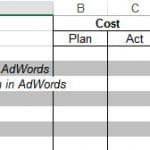Your career as a health and wellness motivational speaker is off to a good start. You’ve overcome obstacles and transformed your life. Here’s how to market your story for a living.
At the heart of nearly every successful motivational speaker are two things: the accomplishment of something amazing and the ability to captivate an audience.
As hard as it is to run across the Sahara with diabetes, swim the English Channel with fibro, or sail around the world while blind, making a living talking about it is even harder.
These hints help you build your career as a wellness motivational speaker:
1. Understand what sells about your story
Almost always, it’s triumph over adversity, determination and resolve, or the “ordinary Joe” or “ordinary Jane” succeeding despite all odds. Add to that the obstacles that held you back, and your victory becomes one of the human spirit. It really isn’t about what you’ve accomplished. Although that is important, it’s not nearly as important as what you endured to accomplish it, how you got past each barrier, and how you’re using that life experience to change the world going forward.
2. Understand who’s buying motivation speakers
People who hire motivational speakers want their audiences to feel inspired and empowered. But some kinds of inspiration matter more than others. Their audiences really want to meet the people they identify most with.
And there’s often a specific reason they’re looking at you. It may be obvious: theType 1 diabetic cycling team winning the 3000-mile Race Across America. The blind pole vaulter setting an all-time school record. The Paralympic triathlete competitor.
Or you may be oblivious to elements of your story that would fascinate audiences. You’re all about your 150-pound weight loss — it never occurred to you that audiences would be interested in how you did this as the child of a well-known chef. Your story about enduring and emerging from years of domestic abuse is inspirational — but you don’t realize that tying it to your passion for yoga would make the story much more relevant and interesting to many audiences. You’ve done hugely important research into chronic disease — inspired by a parent with early-onset dementia.
3. Tailor your messages to each audience
The people in the audience — and that includes the ones who hired you as a motivational speaker — will try to picture themselves in your position. What would I do if attacked by a shark? How could I swim the 2.4 miles of an Ironman with only one good arm? Tweak your material for each gig so that you connect with each audience and bring them fully into your experience.
For instance, if you’re the Paralympian speaking to other physically challenged people, it’s the Paralympics and the Ironman competition and that powerful sense of athletic possibility you have to help them imagine. If you’re speaking to athletes who don’t have to work past a physical disadvantage, it’s working past the disadvantages that you need to portray for them.
On the other hand, if you’re a diabetic athlete speaking to other diabetic athletes, skip your standard intro about the diabetes epidemic. You’re preaching to the choir.
Honing your story one audience at a time, and emphasizing what resonates with that specific audience differentiates you from that big ocean of motivational speakers filled with even bigger fish, some of whom are guaranteed to be big enough to eat you (jet pilot, meet Mr. Astronaut!).
4. Develop a plan to work your channels
Remember: unless you do actual marketing, nothing is going to fill your sales funnel. Marketing is the art and science of cultivating interest and establishing value for your product (Brand You) with a specific set of target customers.
Work a mix of channels to build interest in your personal brand: your website, email, and the most relevant social networks. Your goal is to build strategic visibility, since you can’t be everywhere at once.
Participating in a social media group focused on your audience’s needs is strategic. Setting up a Facebook page without giving anyone a reason to visit it is not. Sharing snippets of your story via email is strategic. Sending email blasts is not.
Associate a “next step” with every element of your marketing. Invite site visitors to subscribe to your email newsletter. In the newsletter, invite them to a webinar where you share more inspiration, motivation, and guidance. In the webinar, include your phone number and a link to your speaker bio to make it easy to champion you as their next keynote speaker to their internal chain of command.
This approach builds interest, cements your brand in the minds of potential clients, and heads off attempts to nickel-and-dime you on your speaking fees. Done right, you develop the prospects that are likeliest to hire you, and avoid wasting time on the ones that aren’t.
Too many wellness motivational speakers set up a Facebook page and email newsletter and then — crickets. They do very little with these channels, and absolutely nothing in other marketing channels.
5. Develop the right content
When what you’re selling is your message, it’s critical that you have the right “words and music” to support every step of your marketing and sales process. Your online and PDF speaker kit packed with all the key content that event managers look for. Your professional biography. FAQS. Testimonials. An ongoing flow of strategic email content. An active and highly relevant blog. Plus the right content for each social network you participate in.
And as you think about content, always remember: every piece of content has a single purpose: to increase interest among specific kinds of prospects and to guide them in the process of hiring you as a speaker.
Tell your story in plain language as if you were telling it to someone you already know. Getting to know your audience works not just in in person but in your sales literature, your phone conversations, email, and social media. It makes your content more relevant and helps build your network at the same time. And don’t forget, “word of mouth” is also content! Word of mouth is exceptionally powerful for motivational speakers. And it originates from two distinctly different sources — event managers and audience members. Know what you want them to think and say.
As you develop your content plan, make sure that you provide resources for both groups so that it’s easy for them to tell others about you.
For example, encourage your audience to sign up for your email newsletter. Then include a YouTube video link with one of your best stories that’s easy for them to share with friends.
For event managers, share a link to a video that’s a compilation of some of your best talks. That’s a great sales tool for them to use internally with their boss.
6. Set appropriate speaker fees
The fundamental principles here are those of supply and demand. We already talked about tailoring your story to fit a unique set of prospects. That reduces the supply of speakers who can meet that need and increases demand for your unique services, which helps justify your price as a wellness motivational speaker.
One of the biggest challenges we see with our speaking clients is their fear of “asking for too much.” Resist the temptation to low-ball yourself. Testimonials from paid engagements prove to you and prospective clients that whatever fee you’ve been charging, it was reasonable to others. It’s less important to get as much as you possibly can on any individual gig. It’s more important to consistently raise your fees as you go.
7. “Lather, rinse, repeat”
Over time, you’ll hone your story, experience your share of awkward moments that you somehow got through, and collect stories from your audience that make for great vignettes. You’ll learn what fees work best and where, what pitches have the best hooks, and what channels work best and when.
What are your standards for success? Popularity? Profits? Follow-on sales? Lives changed?
These and other measures of success are for you to decide. The most important thing is to keep getting out there and doing it.
A thought which, just now, strikes me as strangely… motivational!



